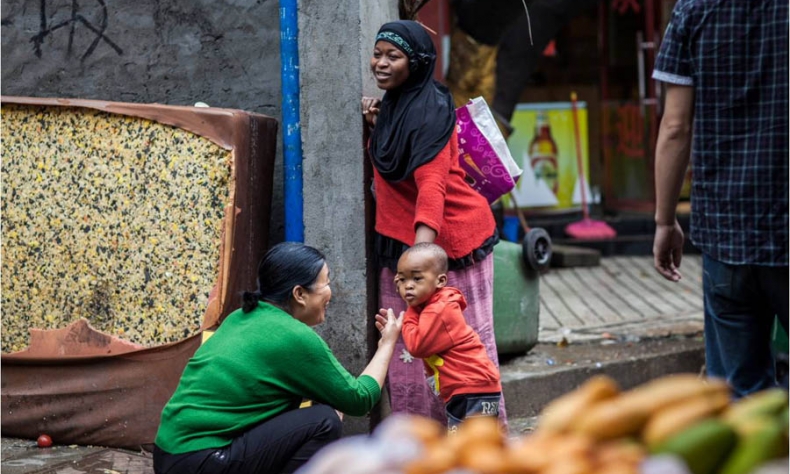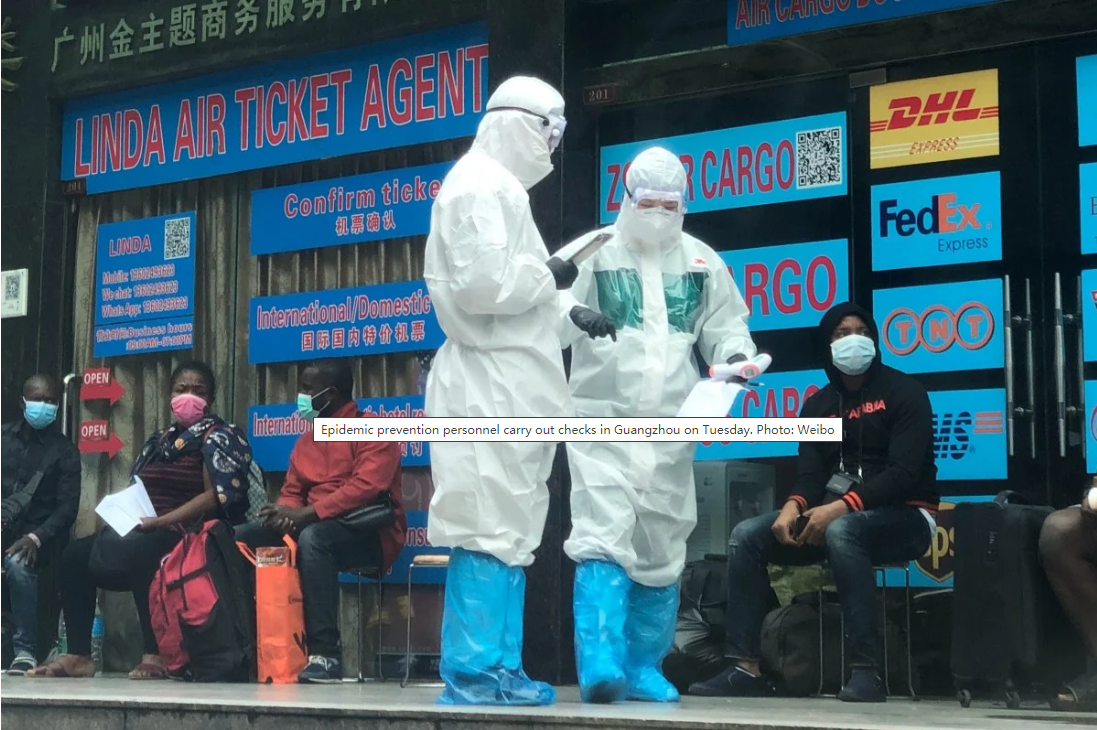China-Africa Unity and Joint Fight Against COVID-19 Shall Not Be Undermined

The all-weather partnership between China and Africa, supporting each other, has been tested by all kinds of storm in the history of more than half a century, and it is impossible to plunge into a “crisis” simply because of the poor performance of some media coverage and the ridiculous remarks of some politicians.
Recently, due to allegations of “mistreatment” of African citizens in Guangzhou during the local government’s coronavirus epidemic prevention and control work, the issue of China-Africa relations has become a focus of domestic and foreign media attention.
Some African and Western media quickly elevated the so-called “unjust” treatment to claims that China had discriminated against Africans and even displayed racism in its epidemic prevention and control work.
However, before accepting such claims we need to first understand the origin of the matter and the scope of the people involved, whether it is individual cases or of a universal nature.
Video clips and some social media reports suggested the epidemic prevention and control measures in Guangzhou have only targeted Africans, who appear to have been “singled out” for targeted discrimination.
However, investigations have shown that the inability of some African citizens to return to their hotels is a basic cause, since the epidemic prevention and control measures in Guangzhou have to be followed by everyone in the residential areas where there are confirmed cases and close contacts, no matter whether they are locals or foreigners.
On April 14, the Chinese Ambassador to Nigeria Zhou Pingjian and Nigerian Foreign Affairs Minister Geoffrey Onyeama also made a special clarification through a joint press conference in Abuja, saying the issue emerged from the Guangzhou local government requiring closure of the premises and isolation of close contacts after identifying a restaurant where a Nigerian had been diagnosed with COVID-19. Persons who were under quarantine were naturally not allowed to move about.
China’s Ministry of Foreign Affairs and Guangzhou local governments have attached great importance to clearing up any misunderstandings arising from the implementation of the relevant outbreak detection initiatives and urged relevant parties to improve their working mechanisms and methods.
The ministry also stressed that the Chinese government treats all foreign personnel in China equally, opposes any discriminatory practices that target specific groups of people, and has zero tolerance for discriminatory behavior.

In fact, any attempt to destroy China-Africa relations is an unjust and unkind act that can only make “the near-at-hand saddened and the enemy gladdened.” If China-Africa anti-epidemic cooperation and the China-Africa relations as a whole are frustrated or face stagnation and even regression, it is the governments, enterprises and people of China and Africa that will suffer.
The only ones that benefit from this will be the sensation-seeking Western media and some politicians jealous of the ever-closer China-Africa relations.
As we carefully screen these smears of China-Africa joint efforts to fight the epidemic, it is not hard to see that, in addition to some untruthful African self media reporting, those particularly active in this regard can be found among media and officials in the United States.
U.S. Assistant Secretary of State for African Affairs Tibor Nagy tweeted saying “videos and stories from Guangzhou are appalling” and that “Chinese authorities must do more to stop these attacks against Africans living and working in China.”
U.S. State Department spokesperson Morgan Ortagus retweeted this with an additional comment of “shameful xenophobia.” Going even beyond the “Guangzhou Incident” itself, Ortagus added: “If you look at the projects in which China is involved in Africa, you can see this kind of abuse and manipulation. China’s commitment to Africa has never been fulfilled. China’s treatment of Africans, especially students, during the coronavirus outbreak clearly reflects the essence of China’s so-called ‘partnership’ with Africa.”
Thus the U.S. State Department spokesperson quickly went from simply commenting on the “Guangzhou incident” to “China’s participation in projects in Africa” and then going on to attack the “materialism” of the China-Africa partnership. This “triple jump” approach shows the world the true face of the United States as it seeks to sow discord between China and African countries and undermine their friendship.
In fact, the Trump administration’s so-called “New Africa Strategy” launched in late 2018 clearly embodies direct name-calling in seeking to curb Chinese and Russian influence in Africa.
In recent years, the United States has hyped the so-called “China threat,” describing China’s development cooperation programs in Africa as a “debt trap.” U.S. Secretary of State Pompeo even made it clear that African countries should move from the “China model” to the “American model” in terms of political and economic development.
It is also because of this policy orientation and purpose of “Trump’s New Africa Strategy” that the administration quickly smells the “explosive nature” of the “Guangzhou incident,” seeking to use it to smear and undermine China-Africa relations.
Of course, as an old saying goes, “sturdy grass withstands high wind, true gold stands the test of fire.” The all-weather partnership between China and Africa, supporting each other, has been tested by all kinds of storm in the history of more than half a century, and it is impossible to plunge into a “crisis” simply because of the poor performance of some media coverage and the ridiculous remarks of some politicians. On the contrary, China-Africa friendship, solidarity and cooperation have been continuously strengthened in these tests.
The author is senior research fellow of Charhar Institute and Institute of West Asian & African Studies of Chinese Academy of Social Sciences.
 Facebook
Facebook
 Twitter
Twitter
 Linkedin
Linkedin
 Google +
Google +










